Construction Material Testing
Construction Materials Testing minimizes surprises by providing in-depth data to help make informed decisions about a project. Our laboratory delivers comprehensive, inter-disciplinary services in the development, processing, characterization and testing of a full range of construction material to make certain that the materials and products we test, inspect and certify for our customers are safe, quality, compliant and fit for purpose
- Aggregates Testing
- Concrete Testing
- Cement Testing
- Reinforcing Steel Testing
- Asphalt Testing
- Roadbeds Layers Testing
- Bitumen Testing
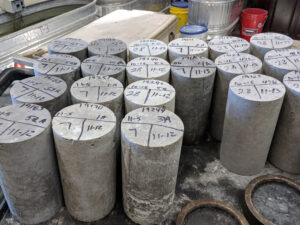

Aggregates Testing
NEWTEST is capable of performing all kinds of aggregate Routine testing which represent the main material used in the construction industry to produce concrete, bituminous Mixtures and Roadbed layers (Basecourse and Subbase).
It requires many tests to evaluate aggregate properties and demonstrate compliance with regulations and quality standards and to improve the quality, strength and durability of concrete and pavement constructions.
The following test are preformed to achieve this:
- Los Angeles Abrasion
- Specific Gravity and absorption
- Moisture Content of Aggregate
- Sieve Analysis
- Organic Impurities in Fine Aggregates for Concrete
- Clay Lumps and Friable Particles in Aggregates
- Flakiness Index
- Elongation Index
- Soundness using (MgSO4 or Na2SO4)
- Sand Equivalent Value
- Modified Proctor Compaction Test
- California Bearing Ratio (CBR)
- Electrical Soil density gauge
- Density and Unit Weight of Soil in Place by Sand-Cone Method
- Water content
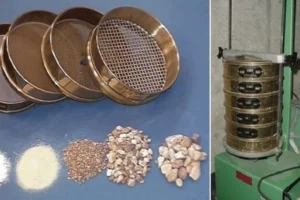
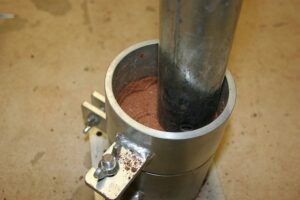
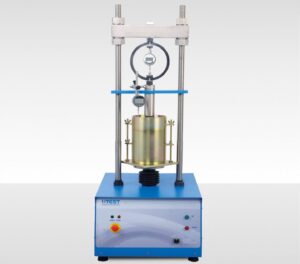
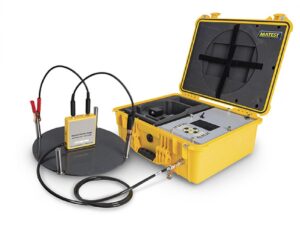
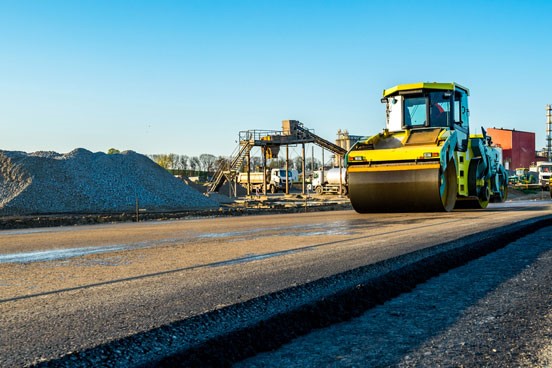
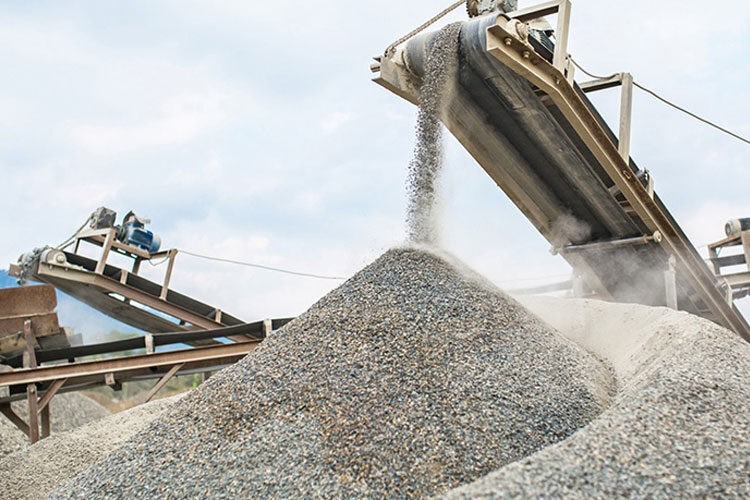
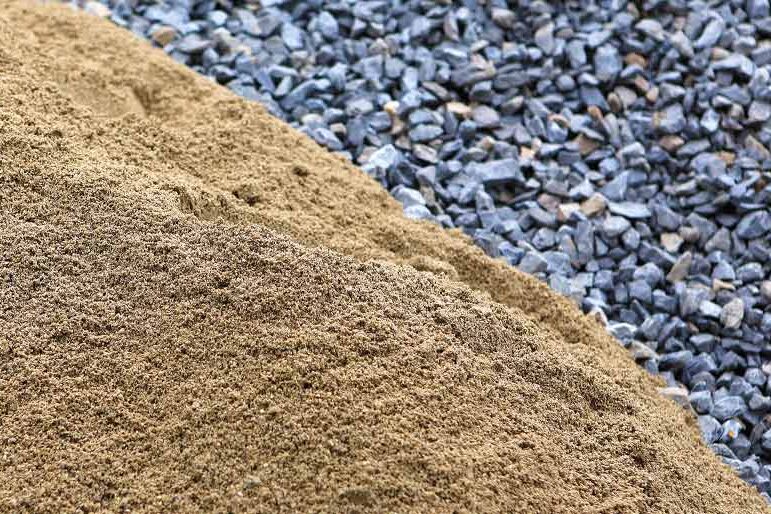
Concrete Testing
Our laboratory is Performing the necessary tests for all types of concrete used in construction projects. Consequently, from pre-construction review, concrete mix design/evaluation, and concrete batch plant monitoring to fresh concrete testing on-site and hardened concrete testing in the laboratory, NEWTEST support you at every stage of your project’s construction.
Our concrete testing services in accordance with internationally recognized BS, EN, and ASTM standards and PS standards to ensure that the concrete comply with it and to raise the quality of production AS FOLLOWING
For Fresh Concrete:
- Sampling fresh concrete
- Concrete Mix Design
- Slump Testing
For Hardened Concrete:
- Compressive and flexural strength for obtaining specimens from field at 7 and 28 days from casting.
- Obtaining and testing Concrete Cores.
- Dimension Measurement
- Measurement of moisture content in the sample after its normal drying
- Density, Absolute water absorption and Capillary absorption
- Abrasion resistance
- Modulus of elasticity
- Cement content in Concrete
- Non-destructive Hammer Test
- Non-destructive Ultrasonic testing
- Pile Integrity
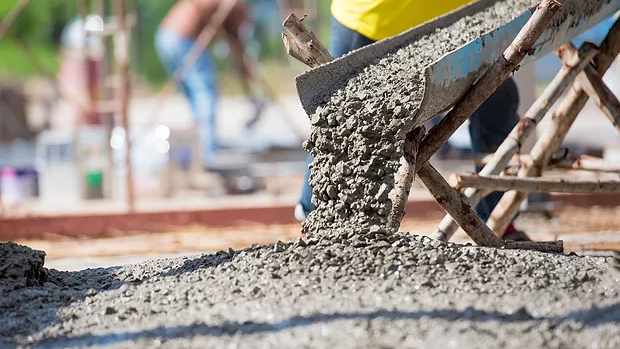
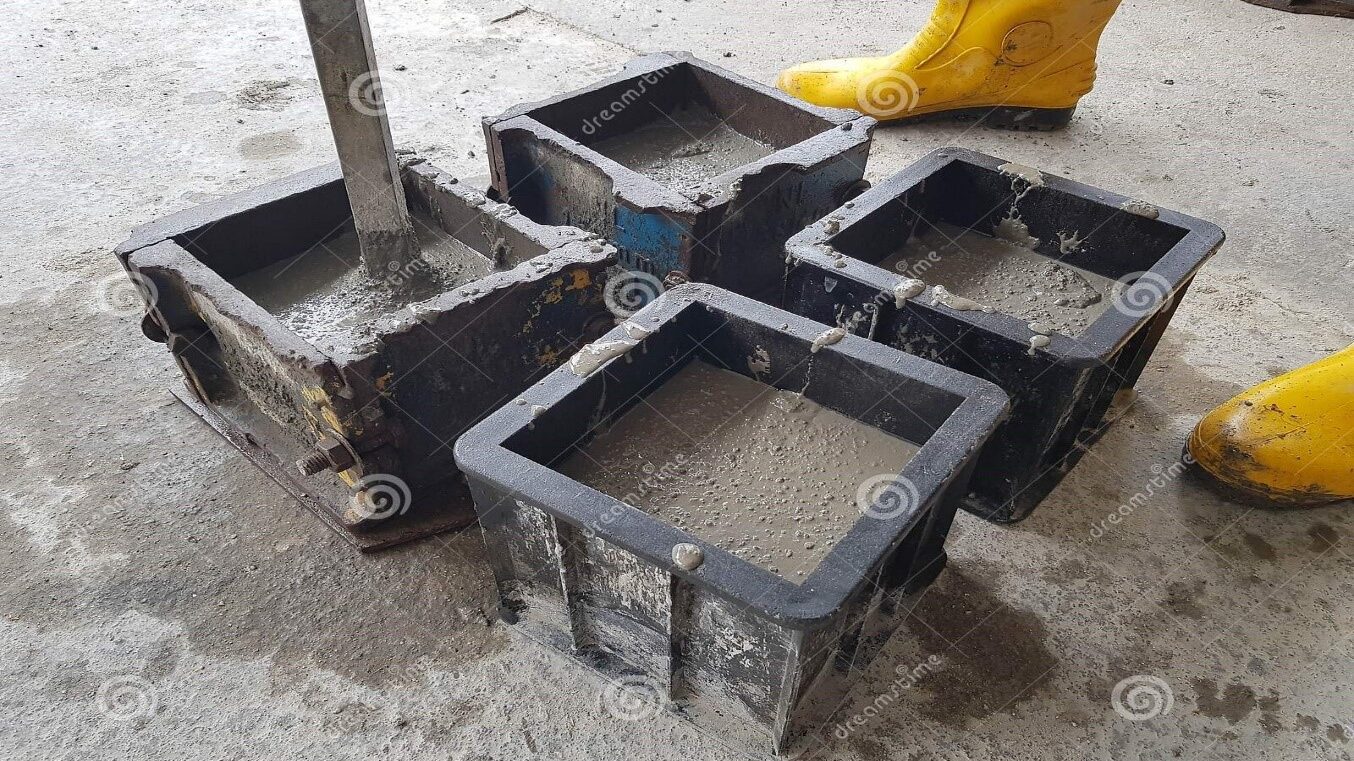
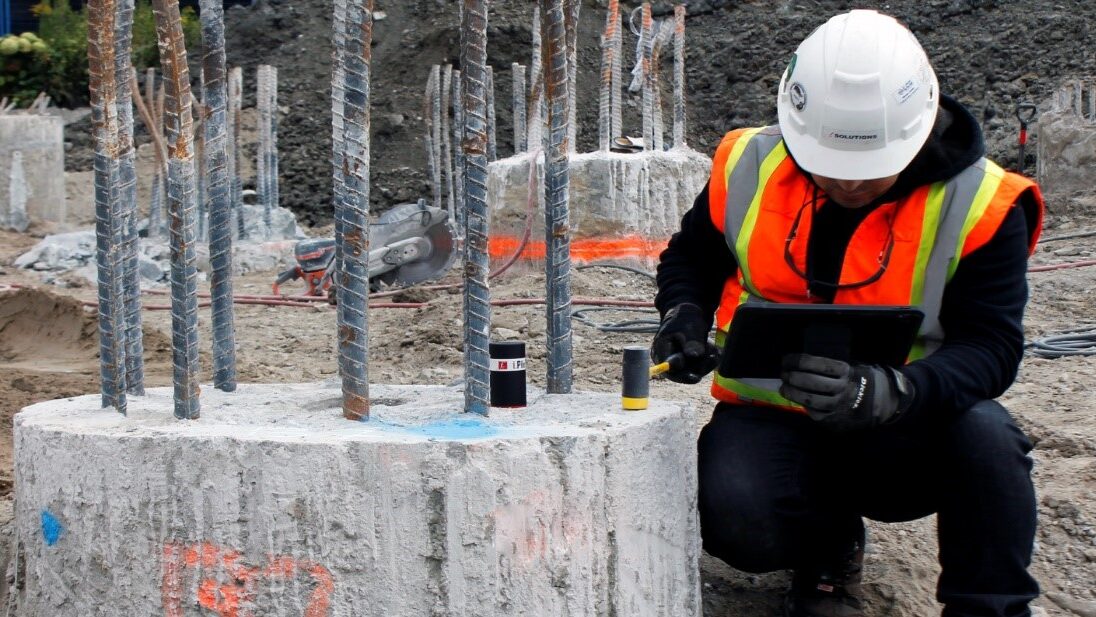
Cement Testing
NEWTEST carry out many tests to check the Strength and the Quality of the cement that used in construction, and to help to identify the usage of cement for different purposes based on its durability and performance and specialize in determining the type of cement if its Ordinary Portland cement (OPC) OR Sulfate Resisting Cement (SRC) to be certain that it will fit the purpose that it will be used for.
The following tests are conducted on cement in the Laboratory:
- Time of Setting of Hydraulic Cement by Vicat Needle
Initial setting time is the time that elapsed from the instance of adding water until the paste ceases to behave as fluid or plastic. Whereas final setting time refers to the time required for the cement paste to reach a certain state of hardness to sustain some load.
Test Method: PS-219-3-1997
- Compressive Strength & flexural Strength of Hydraulic Cement Mortars
The most common strength test, compressive strength, is carried out on a 40 mm× 40 mm cross section cement mortar test specimen. The test specimen is subjected to a compressive load (usually from a hydraulic machine) until failure.
Test Method: PS-219-3-1997
- Autoclave Expansion of Hydraulic Cement (Soundness)
- Cement chemical analysis
- Fineness of Hydraulic Cement and Raw Materials
The fineness of cement has an important bearing on the rate of hydration and hence on the rate of gain of strength and also on the rate of evolution of heat. Greater fineness increases the surface area available for hydration, causing greater early strength and more rapid generation of heat. Cement fineness plays a major role in controlling concrete properties. The fineness of cement affects the place ability, workability, and water content of a concrete mixture, much like the amount of cement used in concrete does.
Test Method: ASTM C786/C786M-16
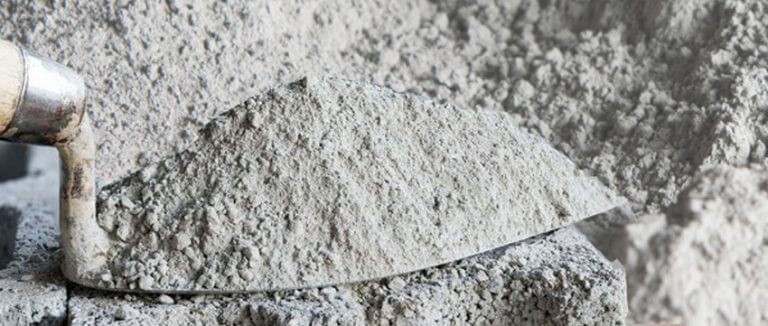
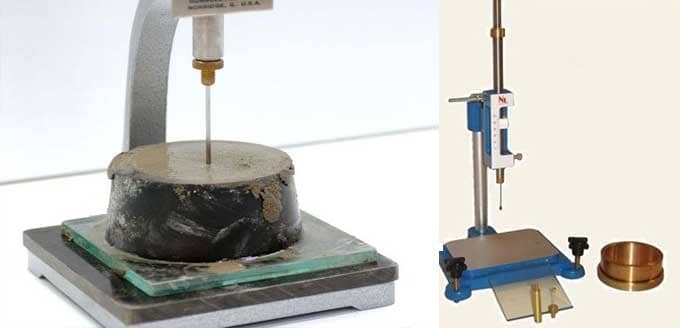
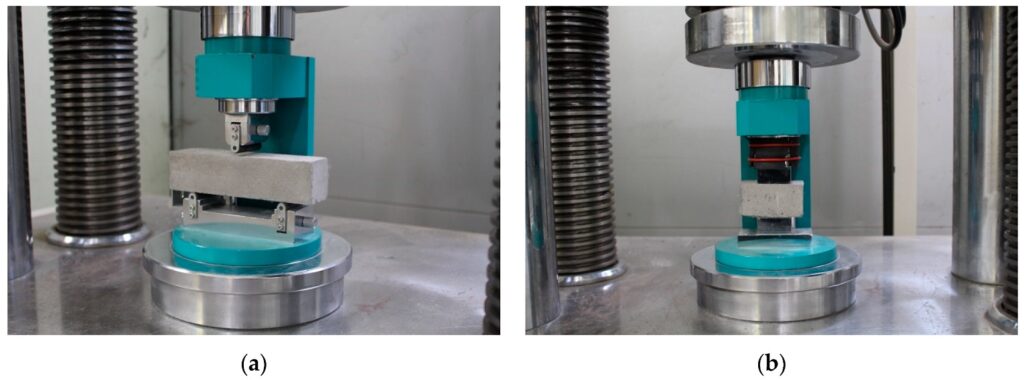
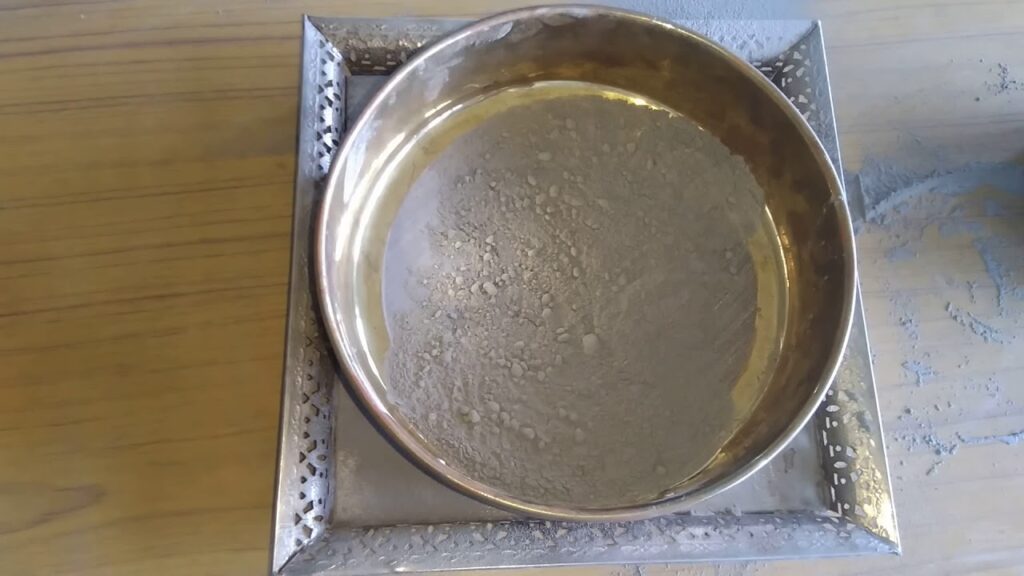
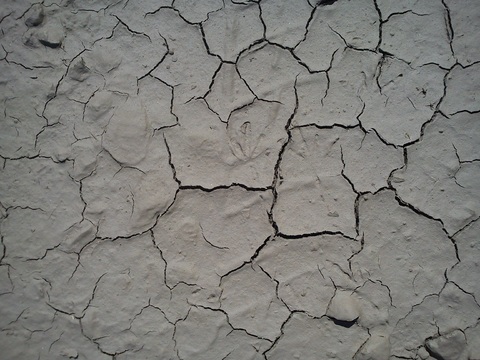
Steel Testing
Steel Rebars are used in concrete construction to enhance tensile strength and helps to maintain structural integrity as concrete cracks from expansion and contraction cycles.
Using advanced techniques and equipment, our Engineers provide valuable insight into Steel rebars performance and characteristics, helping you make critical determinations about it where our Reinforcing Steel tests performed to ensure rebars safety, quality, strength and if it is fit for intended purpose.
NEWTEST offer the following testing methods for steel:
- Bending and re-bending strength for steel Bars
- Tensile strength of ripped steel bars for reinforcement concrete
As the strength and ductility of a material under tension are essential characteristics required for design, quality control, and life prediction of metal parts and finished products.
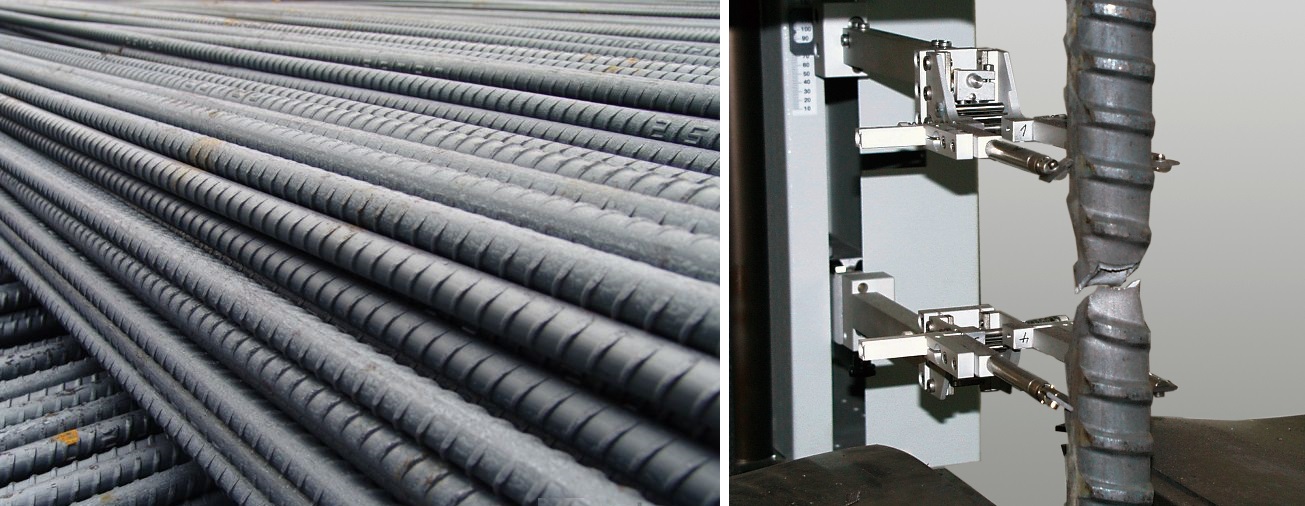
Asphalt Testing
New technologies, increased construction liability, and revised building standards have made quality asphalt testing and inspection integral to the successful completion of today’s construction projects.
NEWTEST Materials Laboratory meets this challenge head-on, offering full-service asphalt design and testing services, performed by qualified testing engineers and backed by the documentation you need to ensure quality asphalt production and installation.
We perform asphalt testing services group to evaluates asphalt binders, asphalt mixtures and other derivatives of asphalt geared for use in the construction industry AS FOLLOWING:
- Asphalt Hot Mix Design (Marshall)
- Bitumen content (Extraction)
- Theoretical maximum specific gravity (GMM)
- Density of Marshall specimens (GMB)
- Marshall Stability & Flow
In addition, Pavements can be assessed in-situ using to control the quality of asphalt works:
- Coring of paved asphalt
- Pavement Thickness Design


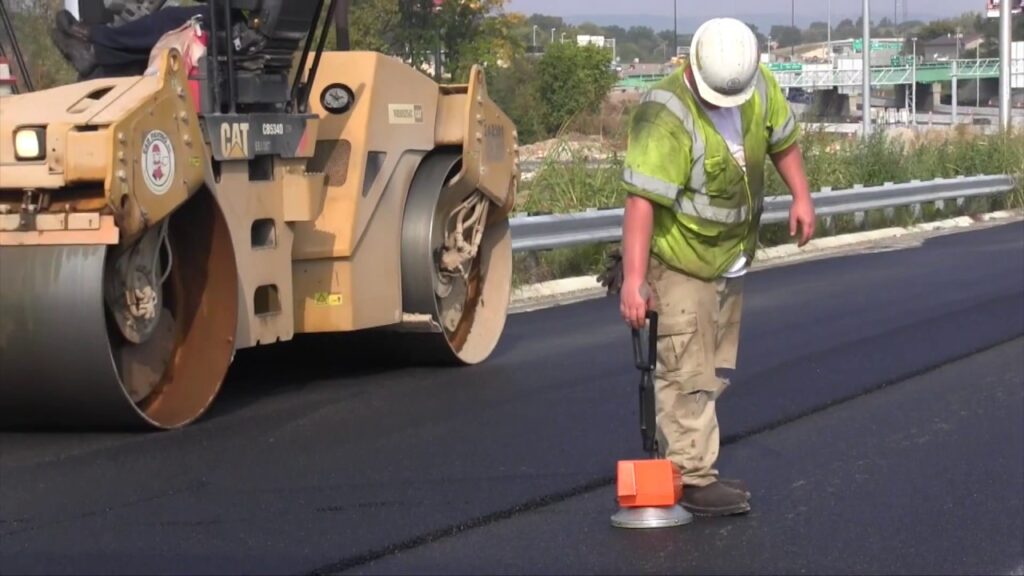
Bitumin Tests
This laboratory uniquely provides testing and analysis for Bituminous products and primers to ensure the quality and different properties of bitumen for pavement construction activities and to make the properties of bitumen more predictable in the time of application and after aging; we have various test methods that we perform to help us reaching this goal:
- Specific Gravity
- Flash Point
- Penetration
- Ductility
- Kinematic Viscosity
- Solubility.
- Water in Petroleum Products and Bituminous Materials by Distillation
- Effect of Heat and Air on Asphaltic Materials
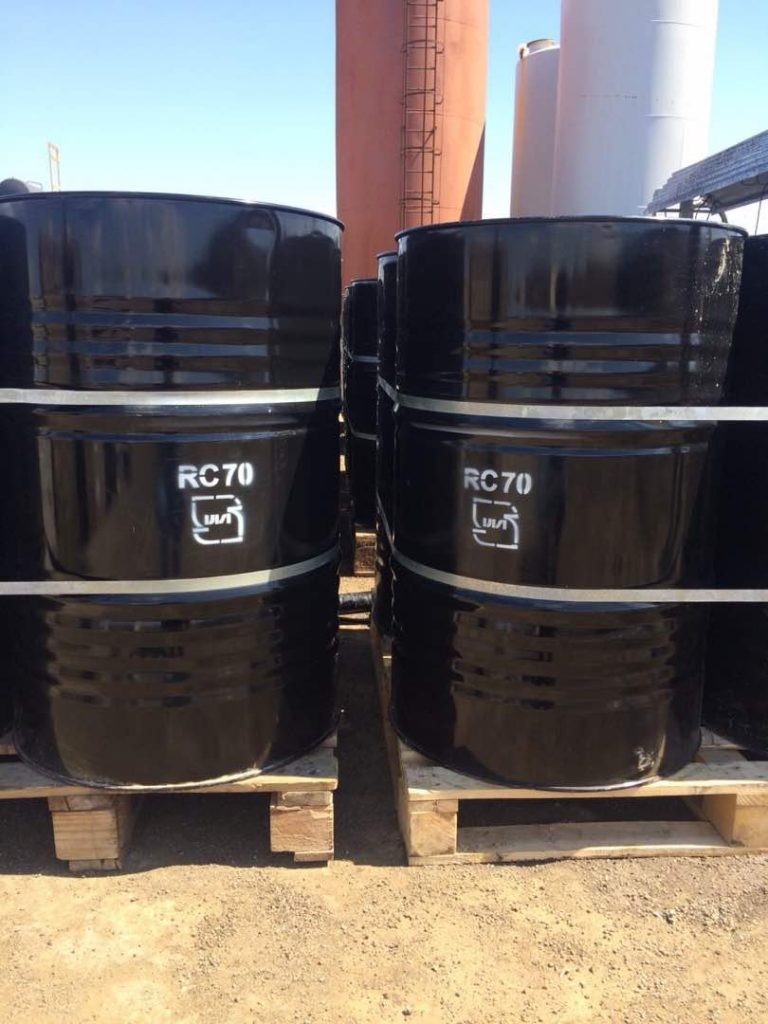
These are just a small selection of the Special Inspection services that our team offers. Contact our trusted team of engineering today to learn more about our full suite of services and Special Inspections.